Meet Your Microbiome
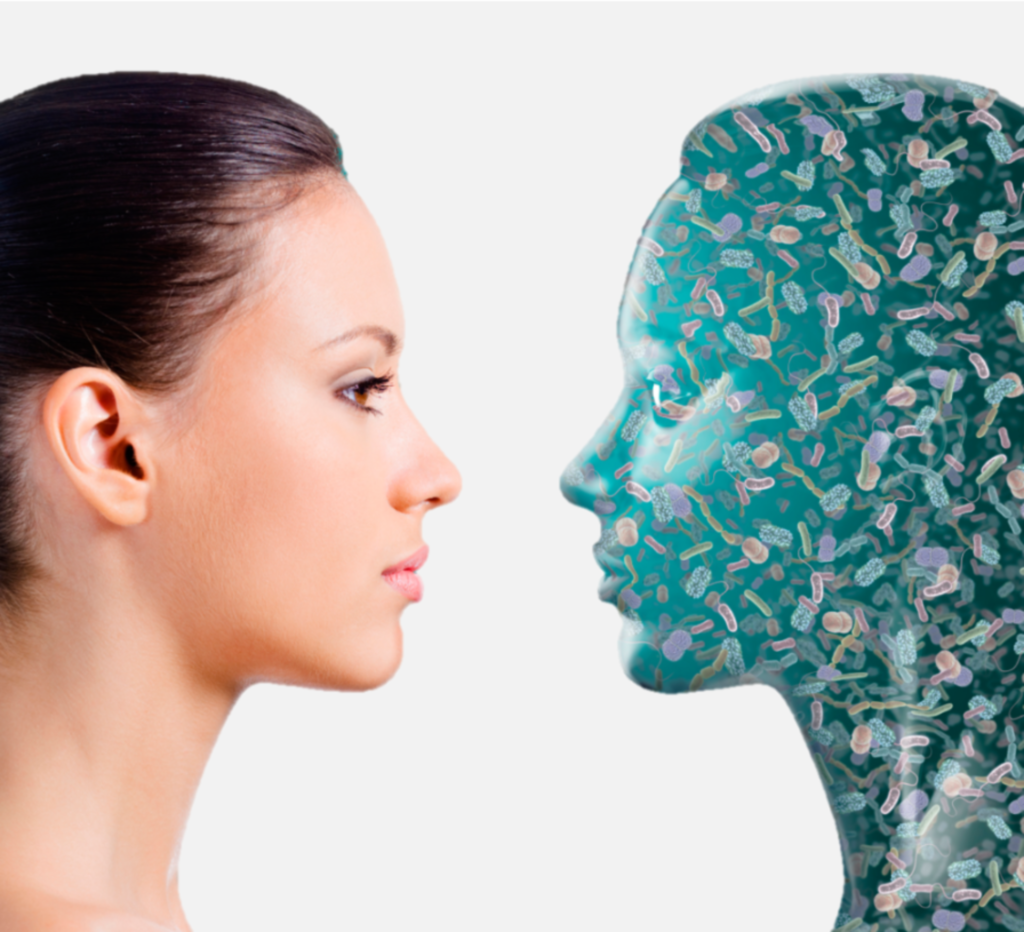
The microbiome, also known as the gateway to your health, is a term that, seemingly out of nowhere, has blown up and trending for the past several years. But did you know that your gut microbiome plays a very important role in your overall health?
It’s true. And over the last couple decades scientists have started to really dig into how your gut microbiome affects your health. And it turns out that it has a pretty big impact.
In fact, your gut microbiome can determine how healthy you are. And that is because we live in a symbiotic relationship with many of the microbes inside us. Meaning, our gut gives these tiny critters a home and their presence actually benefit us greatly.
But here’s the kicker, these little microbes can create problems if the wrong kinds of species are introduced into your gut. Or, if the balance between ‘good’ and ‘bad’ microbial communities gets thrown off.
Before I explain how your gut microbiome affects your health, let’s take a step back to briefly discuss what is the microbiome.
Microbiome Versus Microbiota
The terms, ‘microbiome’ and ‘microbiota’ are often used interchangeably. However, there is a slight, but overlapping, difference between the two terms.
Microbiome refers to the collection of microorganisms (bacteria, archaea, fungi, and viruses) and their genes living within and on us. Mostly in our gut. But also, on our skin, genital regions, mouth, and nose – collectively, they represent our microbiome.
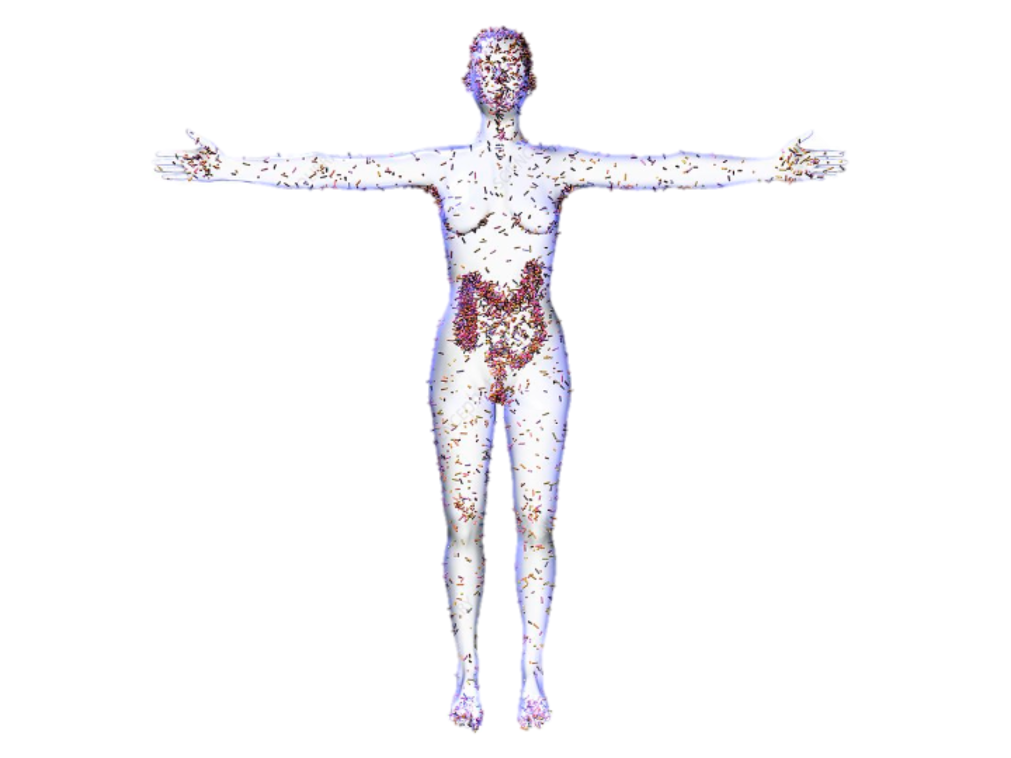
In contrast, the microbiota describes the microorganisms present in a specific environment. For example, your gut microbiota refers to the population of microbes present in your intestinal tract. Your vaginal microbiota refers to those that are in your vagina. And different areas of your body’s microbiota have very distinct communities of microbes that grow and change over time.
How Do You Get Your Microbiome?
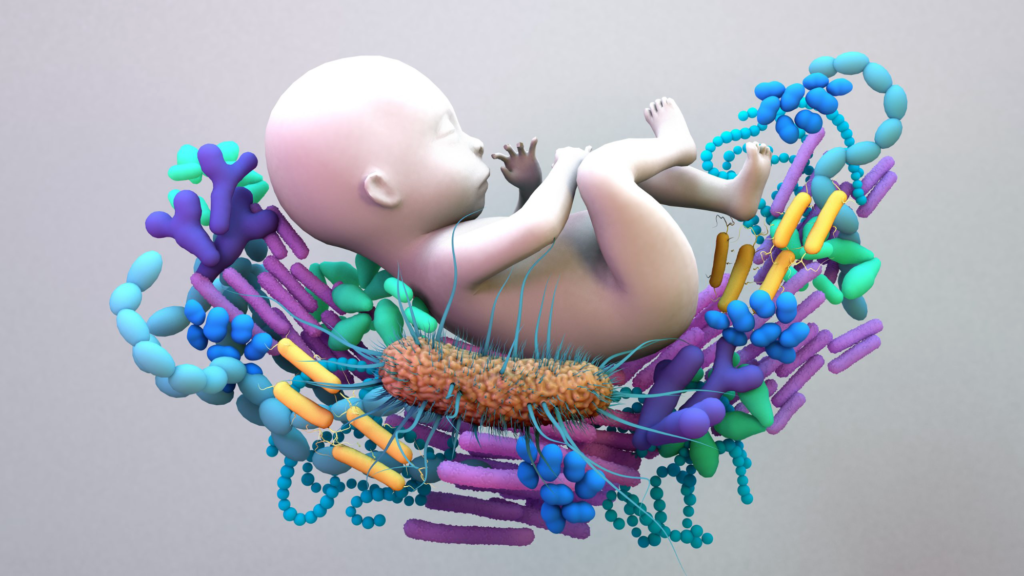
As important as your microbiome is, you actually don’t even have a microbiome until you are born. The uterus you are housed in before birth is completely sterile. Although some scientists have debated whether this is true. As soon as you are born, you are exposed to millions of microbes that immediately take up resident on your tiny newborn body.
Your birth itself affects your microbiome. Meaning that babies who are born vaginally are covered with microbes living in their mama’s birth canal. While babies born by C-section are exposed to a different set of microbes, like ones that live in the operation room or on the skin of the nurses or doctors who first touched you.
Even where a baby is born can make a difference to the microbes found on their bodies. The microbiomes of babies born at home and babies born in the hospital look different.
Factors that Affect Which Microbes You Get
As you grow and mature, you pick up new microbes from your environment and the people around you. And the microbial communities in different areas of your body become more specialized. Meaning the types of microbes in your gut microbiota is different from the types of microbes on your skin microbiota.
Even as an adult, there are plenty of things can influence which microbes live in your gut. Everything from the foods you eat, to illnesses you get, and the medications you are prescribed. Even how much you exercise, the pets you have, and even where you live. Your microbiome doesn’t really stop changing until you reach old age. At which point, the overall diversity of your microbiome start to decrease and there is less variation between individual people.
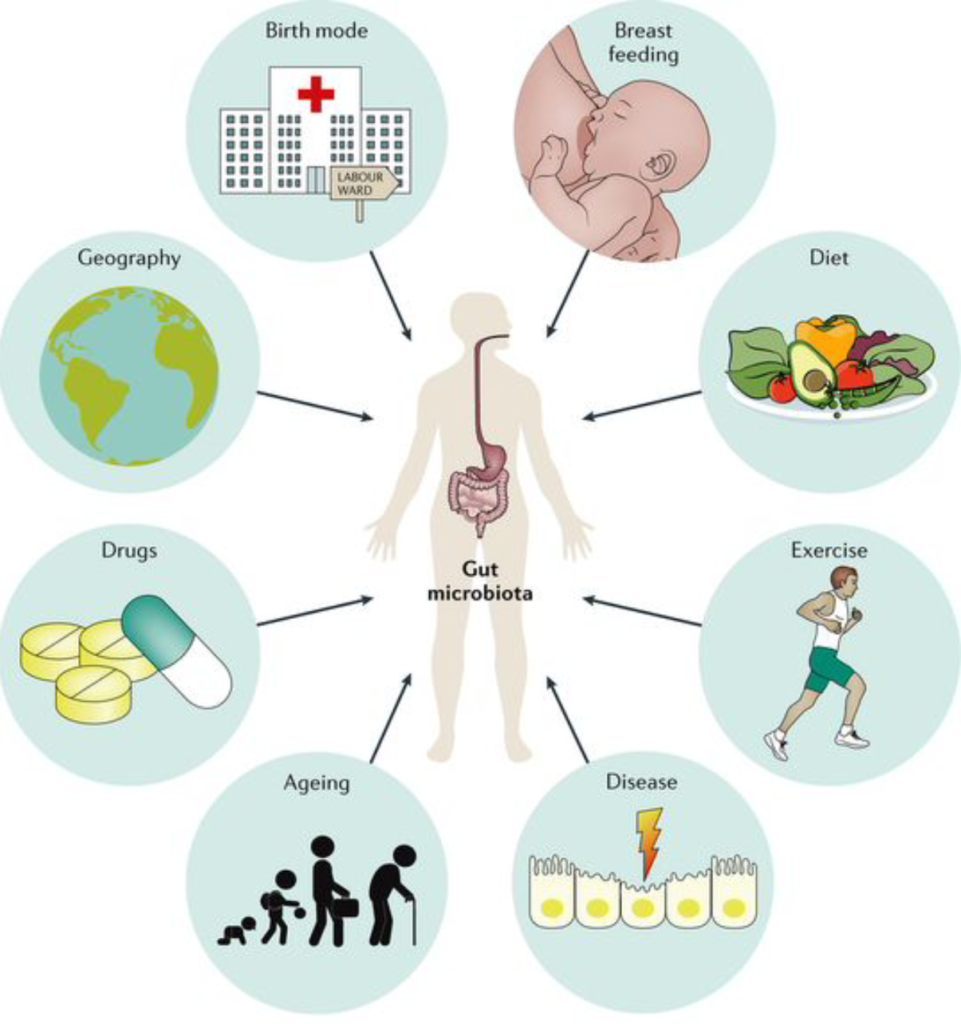
These diverse microbes collectively add up to a lot of potential impact on your health. Your mouth, for example, is full of microbes. They are all over your teeth, tongue, and gums, and tonsils. And when you kiss someone, you are sharing all those microbes with them. It’s really quite romantic! Most of the microbes in your mouth are harmless. In fact, they might actually help you out by simply being there to take up space. This prevents more deadly species from setting up shop in your mouth.
Then there is the microbiota in your gut. It turns out that the microbes in your gut are actually super important for your health. That is because they actually help break down and digest food, thus, influencing the nutrition you get from what you eat. And, scientists have discovered that your gut microbiota can actually affect your overall health.
Your Gut Microbiota
The human gastrointestinal tract (aka. gut) houses a vast number of microorganisms. Not just bacteria (though they are the most studied), but also, viruses, fungi, and archaea. In fact, these microbes don’t merely occupy space in your gut, they share a symbiotic relationship with us, their host. That means, us humans benefit from having them in there because they play an important role in maintaining several of our normal bodily functions.
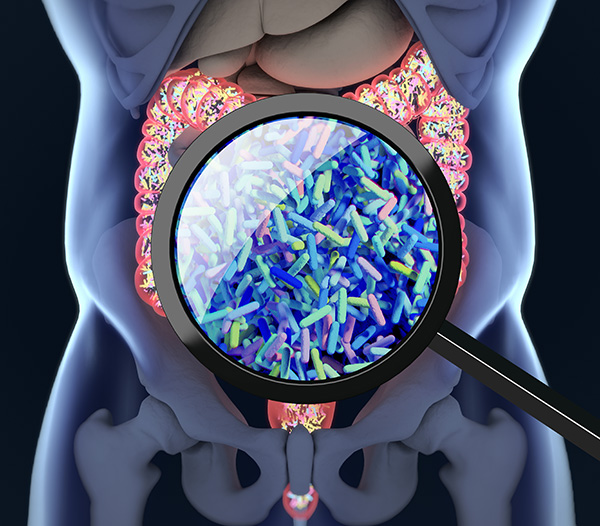
In the gut alone, there exists about 100 trillion microorganisms, making up 1 to 3% of the body’s mass. That is roughly 2 to 5 pounds (1 to 2 kg). We have as many microbial cells as we do human cells. And each of us has up to 500 to 100 different species of microbes in our gut alone.
Because of the sheer volume alone, scientists concluded that our microbiome plays a major role in our overall health. So much so that some scientists even refer to the gut microbiota as a “virtual organ within an organ”.
Your Gut Microbiome Is Unique
Now, everyone’s gut microbiota generally performs similar tasks. But just like how your DNA is unique to you, so is your microbiota. Meaning, the species of bacteria in your gut microbiota that digest carbohydrates might not be the same species that do it in my gut microbiota. This helps explain why people respond differently to the same foods. And even the number of species in the gut microbiota can be completely different from you to me to the next person.
Essentially, your gut microbiota is as unique to you as your fingerprint is. And this uniqueness is what makes microbiome research a bit challenging. The main reason is that it can be extremely difficult to determine what a “normal” microbial community should look like. And so, it is not as easy to identify what happens when things go wrong.
That said, however, with many years of immense research, scientists have learned a lot. Such as how the microbiome forms. How changes in gut microbial communities can affect your health. And in some cases, they have even figured out how to fix your microbiome when it gets thrown out of balance.
Functions of Your Gut Microbiota
To simply say these microbes play a role in our health is hugely understating the importance of all the functions of our gut microbiota. In actuality, these tiny microbes in our gut play a vital role in our health. They protect us against certain diseases, to programming and strengthening our immune system, and even helping us digest the food we eat.
For context, the image below depicts just some of the gut microbiota’s functions:
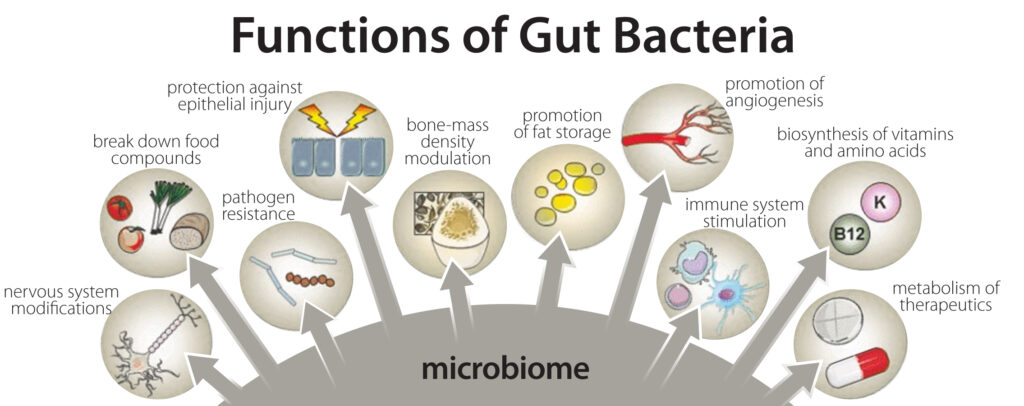
And this is just a short and simplified list. Needless to say, our gut microbiota plays a fundamental role in many of our normal bodily functions.
But it isn’t simply having one individual species or one individual strain of bacteria that keeps our gut microbiota healthy. Rather, it is about having a wide diversity of bacteria in your gut microbiota that is most important to having a well-functioning and thriving gut microbiota. That is not to say every single type of bacteria are good for you. Rather, it is the balance of friendly and unfriendly bacteria (a.k.a. pathogens) in our gut that work together to keep us healthy, both physically and mentally. Meaning, that the more different types of species and strains the better!
How Your Gut Microbiome Can Affect Your Overall Health
Because the microbiome is so diverse and it is a relatively new field of study, there is a lot scientists don’t know about. Like how, exactly, do the microbes in your gut affect your overall health. They just know they do.
Recently, for example, scientists have found that in people with irritable bowel syndrome (IBS), the foods they eat interacts with the microbes in their gut in such a way that causes their IBS symptoms. The idea is that diets high in sugars feeds certain kinds of bacteria that can cause fermentation in the gut. And this fermentation is thought to lead to the symptoms of IBS, such as cramps, bloating, constipation, diarrhea, and excessive gas.
In more severe intestinal conditions, like irritable bowel disease (IBD) and Crohn’s disease, scientists have found that people with less diverse bacteria in their gut have a higher level of disease activity. Basically, if you have only a few types of bacteria in your gut then your IBD symptoms might be more severe and occur more frequently.
Is it the Chicken or the Egg?
What is not clear is the answer to the ‘chicken or the egg’ question. Meaning, is it the changes in your gut microbiota that leads to the disease. Or, is it the disease that leads to the changes in the gut microbiota.
What we do know is that there is a strong connection between bowel inflammation and the gut microbiota. And that connection seems to have a great impact on our gut health.
Scientists know this link exist because they discovered that when one of the unfriendly bacterial communities becomes more dominant, it throws off this equilibrium and can lead to dysbiosis. Dysbiosis happens when the healthy balance of ‘good’ and ‘bad’ bacteria in your microbiome gets thrown out of whack. And this can occur in your gut, vaginal, skin, mouth, and nose microbiota.
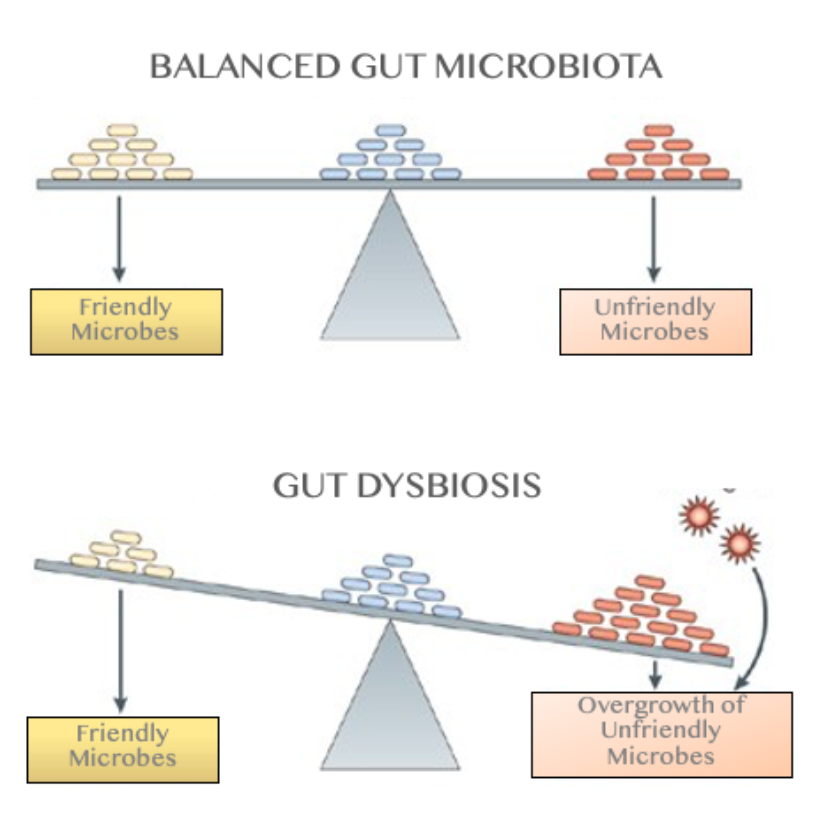
For example, most of the time, if a small imbalance occurs in your gut, you may experience temporary and mild intestinal symptoms, such as an upset stomach. However, if the disturbance between your bacterial communities grows from a minor neighbourhood dispute into a full-scale brawl in your gut, take cover. Because it may be a warning sign that you may be at risk of developing more serious health issues.
What Can Cause Dysbiosis?
Your microbiome is unique to you and mine is unique to me. And so, there is no ‘one size fits all’ answer to this question. With that said, there are some common causes of dysbiosis that you can be on the lookout for:

- A diet high in simple sugar and carbohydrates. Some unfriendly bacteria feed and actually thrive on simple sugars and carbs. Therefore, eating a high sugar diet is essentially helping those unfriendly bacteria overgrow and take over. This will push the balance in favour of the unfriendly bacteria in your gut. The effects can even manifest in other microbiotas, such as your skin and mouth.
- An excessively high protein diet. Yes, protein is inherently beneficial and necessary for you to be healthy. However, excessive protein, meaning more than 1 gram/kilogram of bodyweight per day, increases protein fermentation in the large intestine. As a result of this fermentation, it produces certain toxic bacterial metabolites that have been shown to be related to diseases, such as colorectal cancer.
More ways to help restore gut microbial balance
- Excessive use of Antibiotics. Most antibiotics are broad-spectrum, meaning they wipe out all microbes, not only the pathogenic ones. Thus, the beneficial bacteria that normally live in your gut become collateral damage in the fight against infections. Thus, it can seriously throw your gut microbiota out of balance. This can lead to certain pathogenic bacteria to move in and fill up the space the antibiotics created in your gut.
- Stress, both physical and mental. Chronic stress causes changes in the composition, diversity, and the number of gut bacteria. And some of those bacteria are needed to help fight the unfriendly bad bacteria. So, when you’re stressing out, your natural defences against these pathogenic bacteria goes down. This allows them to kick out the friendly bacteria and set up shop in, essentially, taking over.

5. Heavy Alcohol Consumption. One or two glasses of wine per week may be healthy for your heart. But heavy drinking (two or more alcoholic beverages per day) has been shown to majorly disrupt your gut bacterial communities. This, in turn, may lead to an overgrowth of a specific species bacteria shown to be linked to liver disease.
- Unprotected sex with multiple partners. There also needs to be a healthy balance of bacteria in our vaginal microbiota. And so, frequent unprotected sex with multiple people can expose you to various pathogenic bacteria. Which can, in turn, overtake the healthy ones in your vagina that can lead to various infection.
Symptoms of Dysbiosis
Because the microbiome is unique from person to person, a dysbiotic microbiome will also be unique in the sense that the bacteria imbalance will be different from person to person. Meaning the types of bacteria that are out of balance will cause different symptoms.
With that said, there are some common symptoms of a mild dysbiotic microbiome you can look out for:
- Extreme and prolong halitosis – meaning bad breath
- Chronic upset stomach
- Constipation
- Diarrhea
- Nausea
- Vaginal or rectal discomfort or itching
- Brain fog – leading to difficulty thinking or concentrating
- Anxiety
- Depression
Even though some of these symptoms may seem mild, if you experience any of these symptoms and are concerned, please seek medical advice from your doctor.
How to Take Care of Your Gut Microbiota?
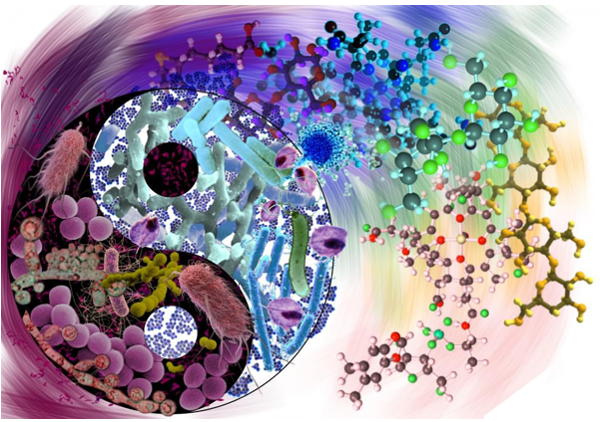
Now we know that the health of your gut microbiota has such a huge effect on your overall health. And to keep your gut happy, there needs to be the right balance of ‘good’ and ‘bad’ bacteria. So, you might be wondering how you can take care of it. And also, how to you keep your gut microbiota in balance.
In my previous post about supplements (read it here), I discussed the essential nutrients we should be taking. Partly because many of us are deficient in them. And another part of it is that certain nutrients are necessary to keep certain healthy species of bacteria happy. Therefore, it is important that you are getting enough of the following nutrients:
- B Vitamins, such as vitamin B6 and vitamin B12
- Calcium
- Magnesium
- Iron
- Folate
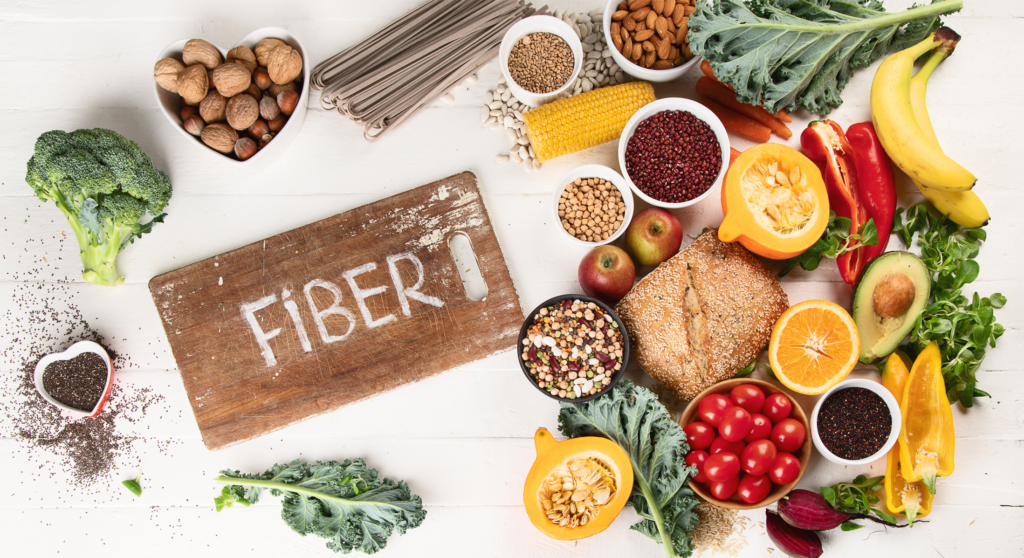
You Are What You Eat
In addition to getting enough essential nutrients, different foods influence which kinds of microbes can grow, and how much. That is especially true when it comes to the kinds of plants you eat, how much, and how often you eat it.
Studies have shown that the single greatest predictor of a healthy balanced gut microbiota is consuming lots of fibre from a wide diversity of plants.
This is because many of the ‘healthy good’ bacteria feed off the fibre from plants to produce a compound called short chain fatty acids (SCFAs). SCFAs are oftentimes referred to as ‘post-biotics’, which are essentially “compounds that are produced by healthy gut microbes”. SCFAs do a few things. One of which is that it creates a more acidic environment preventing the growth of pathogenic bacteria. Another is SCFAs can directly suppress dangerous strains of bacteria, such as E. coli and Salmonella.
And so, lots of different kinds of plants means lots of different kinds of fibre. And this also means lots of diversity in the microbes of your gut.
You Are Also What You Are Not Eating
But just as importantly, eating less of certain foods can keep your friendly gut bugs healthy and happy. These foods include processed meats, refined carbohydrates, dairy, and foods high in refined sugars. That is because they feed the few dormant pathogenic bacteria in your gut. In turn, causing them to potentially overgrow. And thus, throwing off the bacterial balance in your gut.
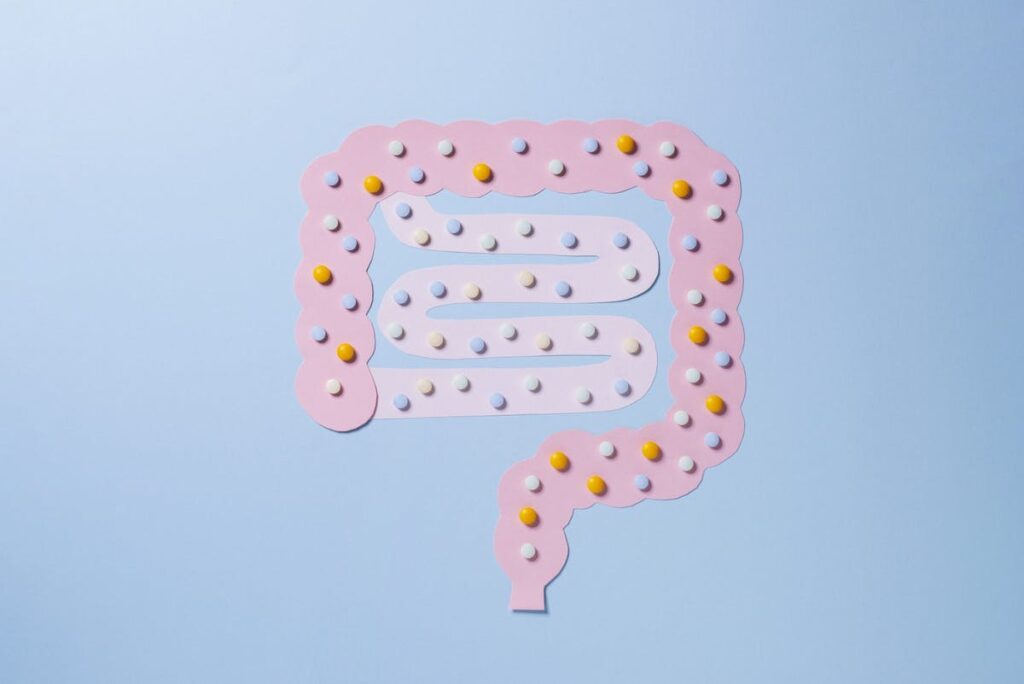
Also, to help balance out dysbiotic microbiomes, scientists are working on understanding how prebiotics and probiotics might help restore proper levels of good bacteria in your gut. Because this is such a broad topic, it clearly deserves a post all on its own. So, stay tuned for that!
The Bottom Line
If there is one thing we know for sure about your microbiome, it is that it is really complicated. And because everyone’s microbiome is so different, every person’s needs are different. There is no “one-size-fits-all” trick for growing or maintaining a healthy population of microbes inside you.
What is clear is that the microbes in and on you are just as much a part of your health as your own cells. In fact, these tiny gut bacteria play a dramatic and, perhaps, a lead role in your health.
So, it is important to keep your gut microbiota happy so you can stay healthy!






[…] From the very moment your baby is born, it sets off a complete transformation of your baby’s gut. The biggest change is the introduction of microorganisms, which includes bacteria, viruses, archaea, and fungi – to form your baby’s gut microbiome. (I discussed the gut microbiome in detail in a previous post; you can read it here.) […]